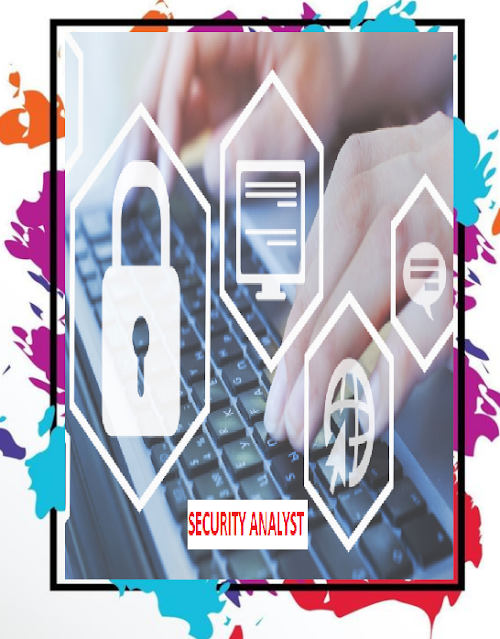SECURITY ANALYST: How to protect your information and stay ahead of the curve.
Introduction: As the data-driven world grows ever more complex, it’s important that businesses understand how to protect their information and stay ahead of the curve. That’s where security analysts come in. They help businesses understand and streamline their security processes, so that data is protected and secure at all times. SECURITY ANALYST: How to protect your information and stay ahead of the curve is a comprehensive guide to securing your business. It covers everything from creating passwords and encrypting data to implementing secure storage solutions. Whether you need help understanding how to protect your information or just want to stay up-to-date on new technology, this book is for you!
What is the SECURITY ANALYST.
The security analyst is an individual who specializes in the analysis and defense of information systems. His or her job is to protect data and information by monitoring and analyzing security risks. The security industry refers to a number of different industries that are potentially impacted by data breaches, such as the insurance, banking, healthcare, transportation, food manufacturing, and energy industries.
How the SECURITY INDUSTRY WORKS
Security breaches happen when someone unauthorized accesses or deletes data from an information system. Data breaches can also occur when individuals conduct unauthorized searches for or viewing of confidential data. A data breach can also be caused by a cyber attack which uses computer viruses or other malware to damage or steal information from a computer system.
How to Protect Your Information
When it comes to protecting your information, there are three main ways: authentication, integrity, and availability (A/I). Authentication involves verifying the identity of the person logging into an information system and maintaining proper session management so that only authorized Users can access the system at any given time. Integrity ensures that all data remains consistent across sessions and transactions across different devices; this includes ensuring that no unauthorized users are able to change or delete data. Availability ensures that service stays available even when one or more devices go offline for any reason (including power outages).
How to Stay Ahead of the curve in the SECURITY INDUSTRY
There are many different technologies used in today's cybersecurity environment including biometric authentication methods like face recognition or fingerprints; wireless technologies like Bluetooth; cloud-based services like Amazon AWS; mobile apps such as Apple’s iOS App Store and Google Play Store; desktop applications such as Microsoft Windows 7 Ultimate 64-bit Edition; smartipersity methods using open source software such as Android Open Source Project’s Honeypot 2; physical security solutions using intrusion detection systems (IDS) such as McAfee Threat Intelligence Gateway products offered through their Partner Programmes
Securing your network is critical for protecting both your personal information and business secrets from theft or loss either during your own activities OR by someone else who has access to those secrets on your behalf.
Network Security threats come in many forms and can originate from insider attacks (attacks by people who are not employees of your company) through unauthorized access to your data, or from external sources such as hackers who gain access to your network through compromised systems or vulnerabilities. By implementing effective security measures that protect both your personal information and business secrets, you can help reduce the potential for loss of revenue, harm to your brand, and even physical damage to your business.
How to Protect Your Information.
Securing your information is essential for protecting it from unauthorized access and theft. Use secure methods to store your data, such as using firewalls and encryption software. Store sensitive information in secure places, such as in a safe deposit box or in a locked office. Use secure communications means, such as using encryption software and requiring two-factor authentication when communicating with online accounts.
Use SECURE STORES to Protect Your Information
Store data securely in stores byKING all necessary security measures, including storing data on hard drives that are passwordprotected and encrypting any data transfer over the internet. Make sure store employees are trained in how to protect your information and keep it confidential. Store sensitive data on premise only if there is an absolute risk of it being accessed without proper security measures in place. Never leave valuable personal information outdoors or accessible to the public.
Use SECURE COMPUTING TO PROTECT YOUR INFORMATION
Use technology to protect your information by encrypting all communication between you and your computer systems. use firewalls to keep unauthorized people out of your system, and use antivirus software to guard against malware infections that could harm your data. Keep important files encrypted on removable devices like USB sticks or flash drives so they can’t be accessed without proper authentication procedures in place. Use secure email threads and communication methods to prevent your data from being accessed by unauthorized individuals.
Use SECURE COMMUNICATIONS to PROTECT YOUR INFORMATION
Use secure communication methods whenever possible to protect your information from being accessed by unauthorized individuals. Use encrypted phone calls, emails, and other online communications to keep your information safe. Be sure to use two-factor authentication when communicating with online accounts, and store sensitive data in a secure place that can't be accessed without proper security measures.
How to Stay Ahead of the Curve in the SECURITY INDUSTRY.
In order to protect your information, use secure technology. This includes using passwords, 2-factor authentication, and encryption techniques.
Use SECURE PROCEDURES to PROTECT YOUR INFORMATION
Use secure procedures to protect your information. This includes using password protection, two-factor authentication, and firewalls to restrict access to your computer or phone.
Use SECURE METHODS TO PREVENT FAILURES IN THE SECURITY INDUSTRY
Stay up-to-date on the latest security news by using secure methods such as email alerts and online newsletters. These tools will keep you informed of new threats and potential breaches in the security industry.
Conclusion
SECURITY is an important topic to keep in mind as you protect your information. Use secure methods to protect your information, store your information securely, and use secure communications to ensure that your information is safe. Stay ahead of the curve in the security industry by current news and research to stay informed about the latest security threats.





